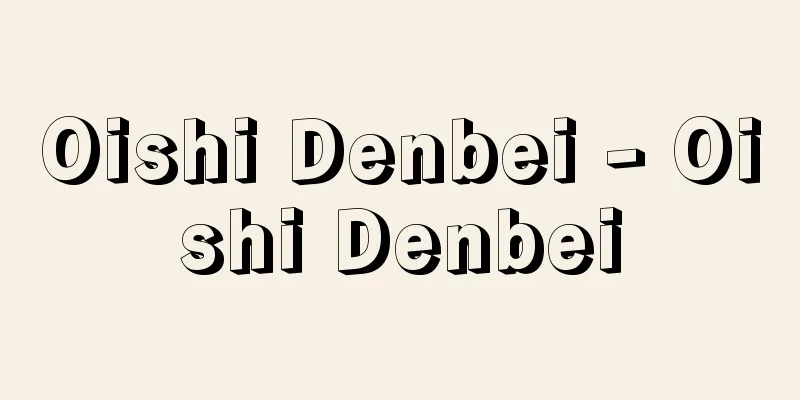Kosaku Yamada

|
Year of death: December 29, 1965 Year of birth: June 9, 1886 (Meiji 19) A leader who shaped the foundations of Japan's contemporary composition and performance world from the Taisho to the Showa eras. Born in Tokyo. Enrolled in the Tokyo Music School in 1904 (Meiji 37), progressing from the preparatory course to the vocal music department and then to the graduate school. As the school did not yet have a composition department, he went to Germany to study. From Meiji 43 to Taisho 2 (Taisho 2), he studied composition at the Berlin Conservatory. After returning to Japan in the spring of 1914, he founded the Tokyo Philharmonic Orchestra, Japan's first symphony orchestra, and conducted and performed his own compositions. In 1918, he traveled to New York, performed his own orchestral works at Carnegie Hall, and was recommended as an honorary member of the New York Society for Modern Music and the American Guild of Musicians. He also teamed up with Oyamauchi Kaoru to found the theater companies "Saturday Theater" and "New Theater," and was actively involved in the new theater movement. In 1919, he founded the Japan Opera Association and attempted to stage operas. In the same year, he co-edited with Kitahara Hakushu and launched the monthly magazine "Poetry and Music," and released a song cycle. It is also noteworthy that together with dancer Ishii Baku, he experimented with dance poetry, aiming to create a fusion of arts, or a comprehensive art form of music, and thus founded Japanese modern dance. Yamada was not only a pioneer of the symphonic and music drama movements, and a practitioner of original song. He was a practitioner in the early days of modern Japanese art, who continued to engage in creative activities to explore, cultivate, and develop the possibilities of various fields. He composed many songs, including the orchestral piece "Mandala no Hana," the symphonic poem "Meiji Ode," and the opera "Kurofune." He became a member of the Japan Art Academy in 1942, and was awarded the Order of Culture in 1956. After the war, the only war responsibility debate in the music world took place between him and Yamane Ginji, over his actions during the war. (Kuniharu Akiyama) Source: Asahi Japanese Historical Biography: Asahi Shimbun Publications Inc. About Asahi Japanese Historical Biography |
|
没年:昭和40.12.29(1965) 生年:明治19.6.9(1886) 大正から昭和にかけて,日本の現代作曲界,演奏界の土台をかたちづくった指導者。東京生まれ。明治37(1904)年東京音楽学校に入学,予科から本科声楽科,研究科へと進む。同校にはまだ作曲科がなかったためドイツへ留学。明治43年から大正2(1913)年までベルリン高等音楽院で作曲を学んだ。大正3年春の帰国後は,日本最初の交響楽団である東京フィルハーモニー管弦楽団を創設して,自作を指揮,発表。同7年にはニューヨークに渡り,カーネギー・ホールで自作管弦楽作品を演奏して,ニューヨーク近代音楽協会および全米演奏家組合の名誉会員に推挙された。また小山内薫と組んで劇団「土曜劇場」「新劇場」を創立,新劇運動に積極的にかかわった。同9年日本楽劇協会を創立,オペラの上演をこころみる。また同11年には北原白秋と共同編集の月刊『詩と音楽』誌を創刊,連作歌曲を発表。舞踊家石井漠と共に融合芸術,あるいは音楽の総合芸術化への方向を目指して舞踊詩をこころみ,日本のモダン・ダンスを創始したことも注目すべき事実であろう。 山田は交響楽運動や楽劇運動の先駆者,創作歌曲の実践者であっただけではない。さまざまな領域の可能性の場をこころみ,育成し,展開するための創造活動への行動をつづけた日本の近代芸術草創期の実践者だった。オーケストラ曲「曼陀羅の華」,交響詩「明治頌歌」,オペラ「黒船」ほか,数多い歌曲がある。昭和17(1942)年日本芸術院会員,同31年に文化勲章を受章。戦時中の行動をめぐって,戦後,山根銀二とのあいだで,音楽界では唯一の戦争責任論争が行われた。 (秋山邦晴) 出典 朝日日本歴史人物事典:(株)朝日新聞出版朝日日本歴史人物事典について 情報 |
Recommend
Cold food - kanshoku
〘 noun 〙① In ancient China, the 105th day after th...
Košice - Košice (English spelling)
The second largest city in Slovakia, Košice Count...
Ammonium amalgam
A spongy solid with a metallic luster is obtained ...
Community - Kyoudoutai (English spelling) community English
A community is a specific type of society that is...
Evoked potentials
Evoked potentials are transient potential fluctuat...
Tadatomo Okubo
1632-1712 A daimyo in the early Edo period. Born ...
Tobias George Smollett
A British novelist born in Scotland. He was popul...
IBF - IBF
《 international banking facilities 》 An offshore m...
Bangi - Bangi (English spelling)
The capital of the Central African Republic in ce...
Figure skating
...This is a way to improve the tactics between r...
Fragrance - Kouyaku
A general term for incense, spices, and medicines ...
Potamogeton oxyphyllus (English spelling)
…[Maki Sachiko]. . . *Some of the terminology tha...
Lithops pseudotruncatella (English spelling) Lithopspseudotruncatella
… [Hiroshi Yuasa]. … *Some of the terminology tha...
Yellow sawtooth - Yellow sawtooth
…The flower language is "dispute" or &q...
Young women - Onago Wakaishu
...an age group of young women that was once form...









